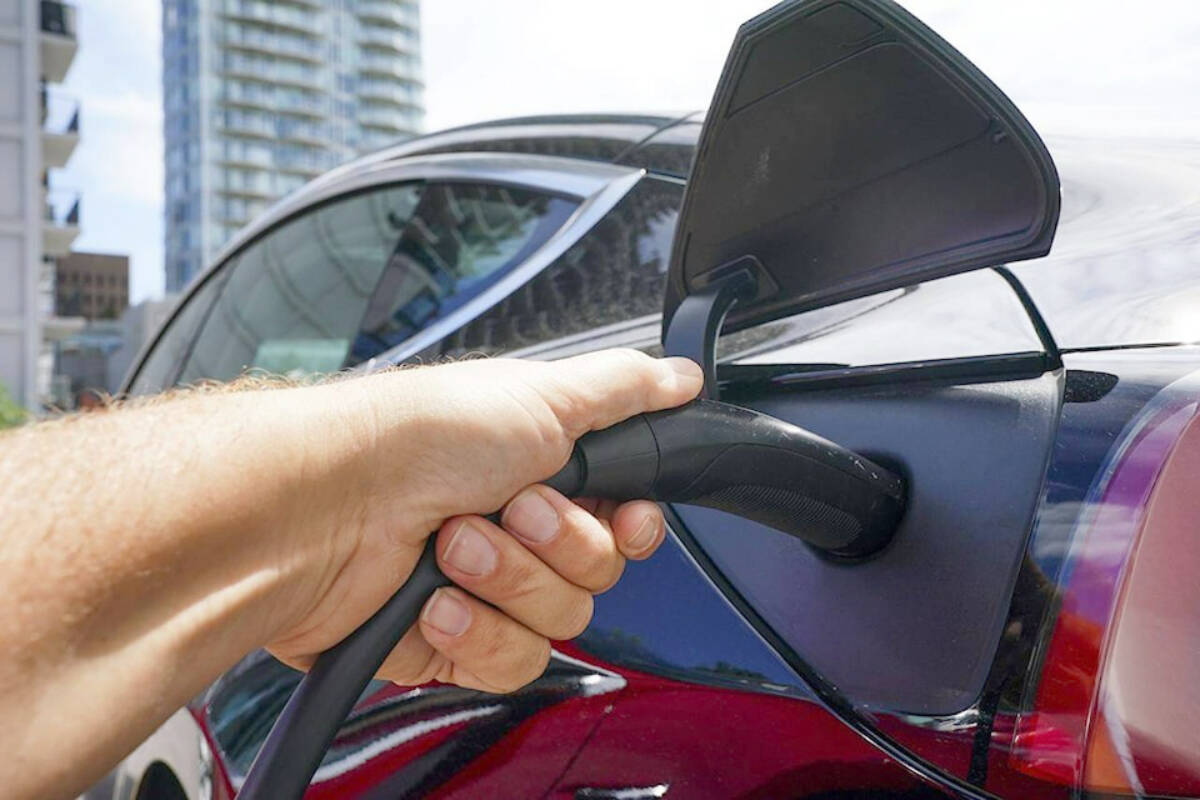If you want to maximize the economic benefits of owning an electric vehicle in B.C., you better be prepared to drive it — a lot.
A new study ranks B.C. as the second-best place in Canada to own an EV thanks to a variety of rebates and supports, but drivers will have to drive their EVs considerably more than gasoline-powered vehicles to realize the savings.
Researchers led by Bassam Javed, a PhD student at UBC’s Institute for Resources, Environment and Sustainability, studied how far people needed to drive to to justify an EV’s extra cost against a backdrop of purchase price, taxes, charging costs, climate and travel distance — all of which vary from region to region.
The study compared a Hyundai Kona EV with a sticker price of nearly $44,000 versus a gasoline-fuelled Kona with a sticker price of just over $22,000.
It found that based on a typical B.C. drive of 34 kilometres a day, over a seven-year period, owning the EV version would cost about $8,000 more. But driving more than a typical B.C. driver will narrow that gap. British Columbians would need to drive 64 kilometres daily over the same seven-year period to break even.
However, Javed said this scenario is not realistic because would-be buyers generally do not choose between EV- and non-EV versions of the same brand. They shop based on their budget. The comparison between the Hyundai Kona EV and a non-EV vehicle with the same sticker price favours the EV.
“So my monthly payments are the same, but because EVs are cheaper to run, then just driving off the lot, I have already started saving money,” he said.
RELATED: B.C. policy expert gives green light to higher electric-vehicles goals
RELATED: B.C. drivers love their EVs, but many worry about long road trips: BCAA survey
This calculation has broader impacts, he added.
“If I am consumer, if I’m willing to potentially go for a slightly smaller car, with may be a little bit less luxury, a fewer bells and whistles, then in that case, if it is an electric, I’m actually going to be saving money,” he said.
The study finds such lower-priced, less-luxurious EVs are not readily available and recommends policy-makers create more incentives for such vehicles.
“There really is a kind of a lack of more affordable EVs,” Javed said adding car manufacturers are prioritizing high-end, high-margin EVs at the expense of more affordable options.
While EVs are definitely an answer to reducing carbon emissions, they “are not the be-and-end-all answer,” Javed said. While they may make economic sense for some, they might not make sense for others based on where and how they live.
The study warns that EVs can worsen what it calls “transportation inequalities” as many can already not afford personal transportation. Widespread adoption could make it more difficult for such people to achieve personal mobility. Governments should therefore not de-emphasize “other pathways” to decarbonizing transportation through investments in public and active transportation.
B.C. Energy Minister Josie Osborne agreed electrification is just one part of the solution. Other options include getting people out of cars into public transit and onto bikes.
Osborne said she welcomed the study, adding her ministry is reviewing its findings.
“They talked about the cost of electricity, the price of vehicles and they talked about the need for home-charging infrastructure,” she said. “These are all things government is providing assistance with.”
When asked whether B.C. might offer additional rebates, Osborne said government will wait to see what happens with prices. They are coming down, she added.
“We expect parity between 2026 and 2030 in that order,” she said. “We know people want to make the switch.”
In 2023, almost 23 per cent of new vehicles sold were EVs. By 2035, all new vehicles sold must be EVs.
Osborne acknowledged that B.C. must “make big changes” to cut greenhouse gas emissions in transportation. It accounts for about 38 per cent of emissions, the largest share of the provincial total.
Javed said the study did not directly address the question of congestion, but the problem nonetheless remains pressing. EV can also cause congestion and they should be appropriately.
Transportation planners are still thinking about how quickly they can replace gasoline-fuelled vehicles with EVs.
“(They) can be great for the climate, but we need to deploy where they make the most sense for people that it makes the most sense for,” he said.

